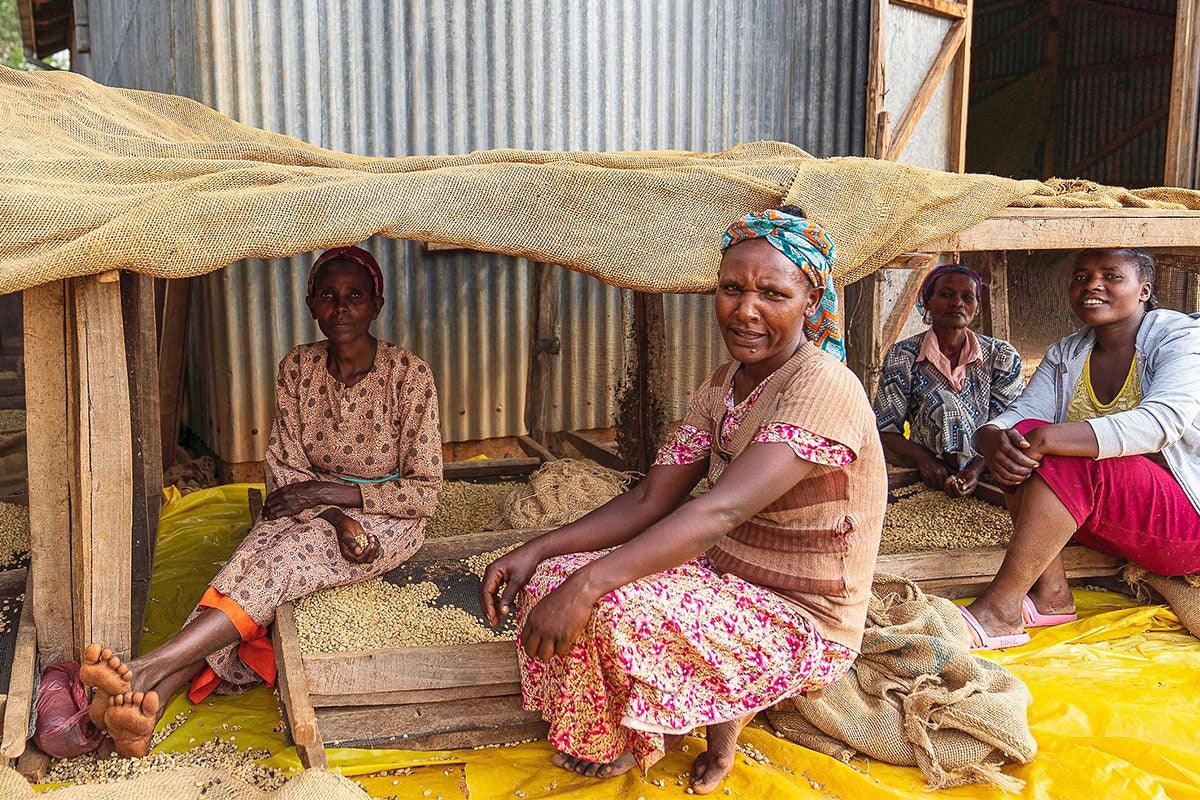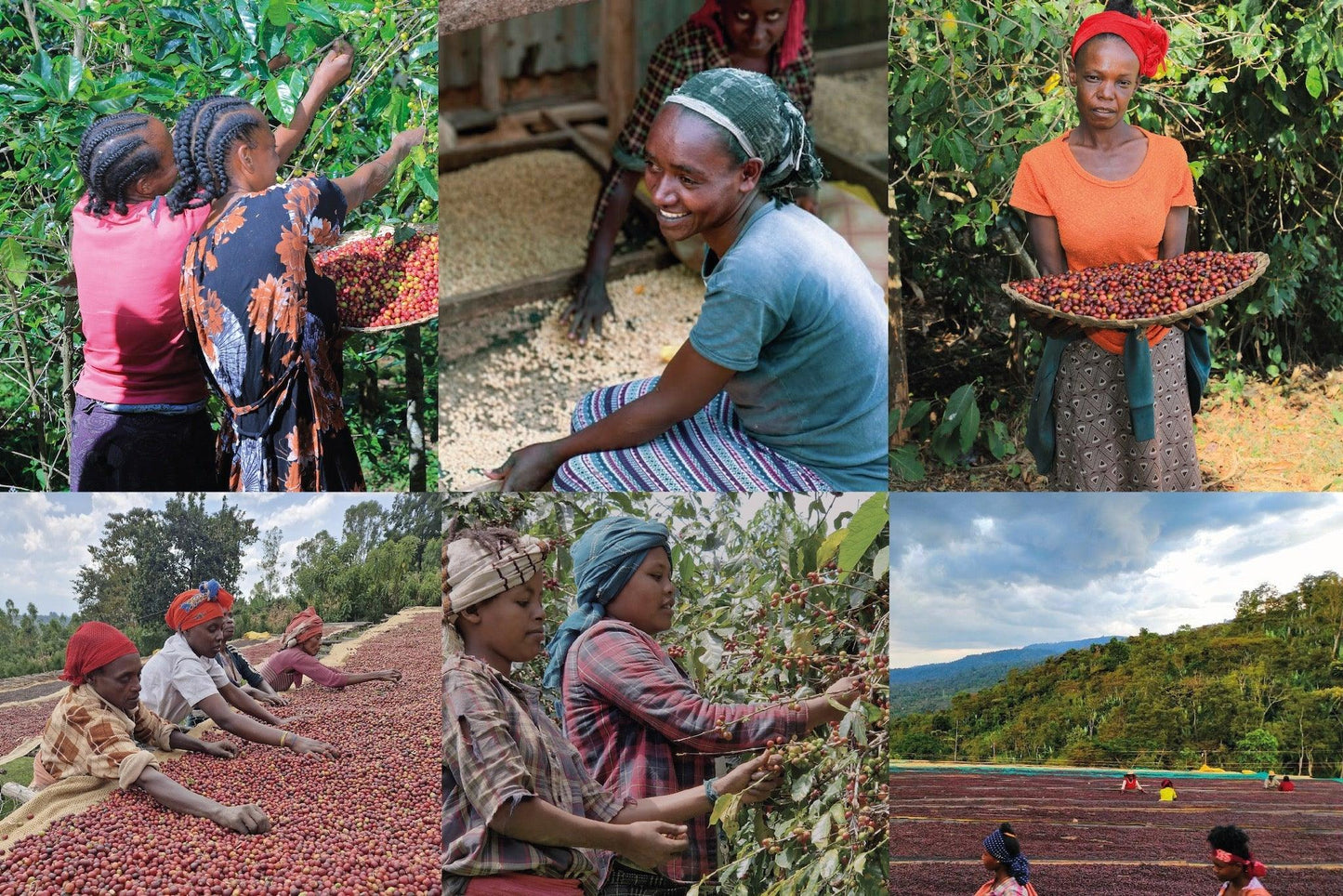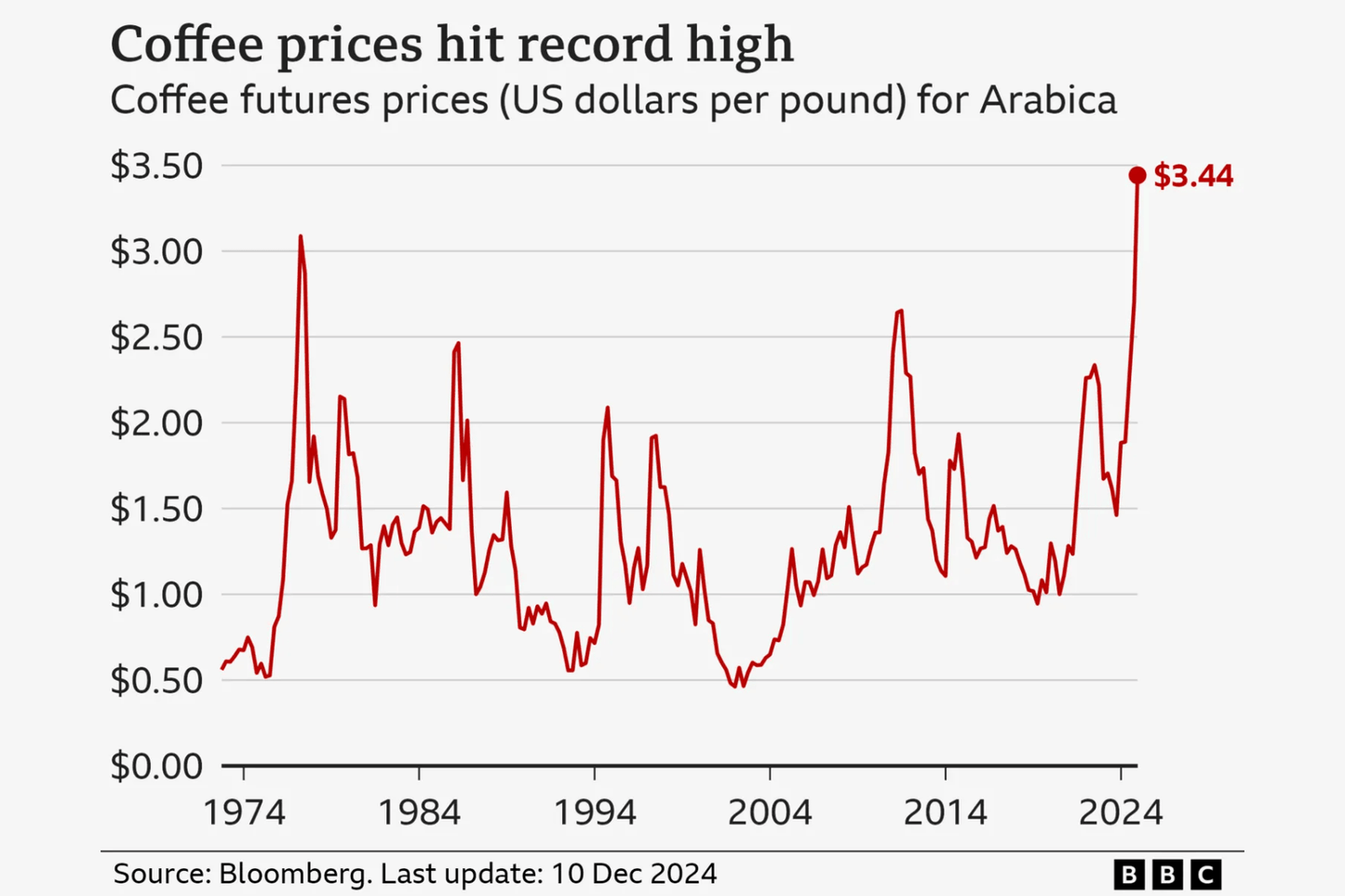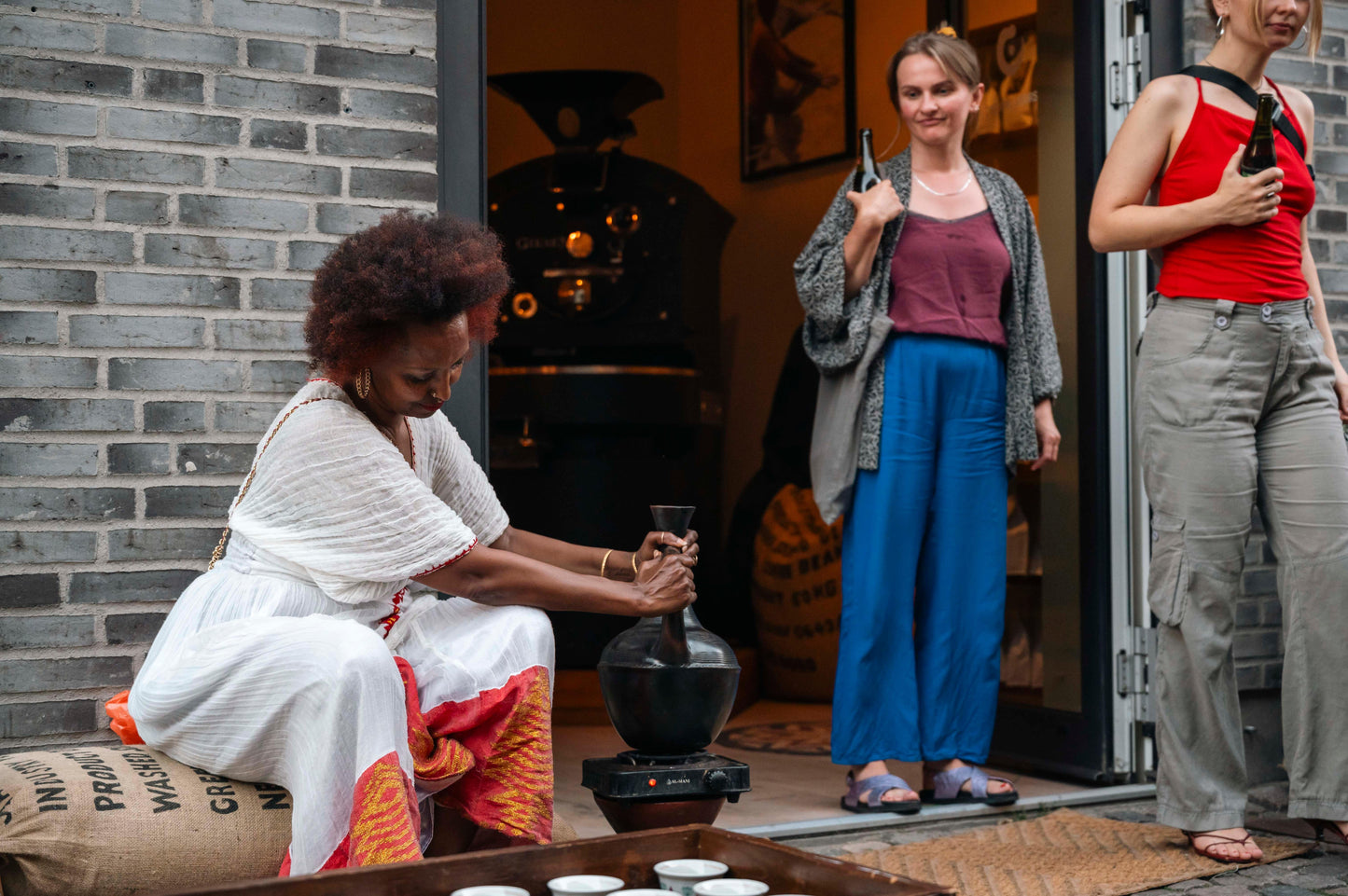At Impact Roasters, we serve cups of filter coffee for the price of 15 Danish kroner every day. In a city like Copenhagen, one of the most expensive cities to buy coffee, this cup is considered incredibly inexpensive, and it might even make you raise your eyebrows. Perhaps, you’ve seen our signs standing out at Valby, Langgade, or Flintholm Station advertising our offer of coffee for only 15 kroner, and questioned the quality of coffee you might be served.
We can’t blame you for this either, as it seems like a deal almost too good to be true.
To understand how coffee is priced and why we at Impact Roasters can serve such high-quality coffee for such a low price, we have to talk about what it costs to produce coffee from farm to cup.

This means we have to talk about the supply chains of the coffee industry and develop a basic understanding of the cost of goods being sold and how specialty coffee, like the coffee we serve at Impact Roasters, is vastly different from the coffee you could purchase at a supermarket.
Not only can we tell you the country where your cup of coffee originated, we can tell you the region it was grown in, and if you asked, we could probably tell you which estate (ie. farm) it was grown on, who had a hand in processing it, and how it was imported. You would be hard-pressed to find a standard supermarket brand of coffee that would tell you anything like this.
You might be asking, why does it matter? If a lot of companies don’t provide this information, why is it important? First, knowing the coffee origin, or where the coffee bean was grown, is an important part of coffee consumption because where a coffee plant was grown will dramatically affect the taste of the final product you drink. For example, South American grown coffees (broadly speaking), are known to have rich chocolaty flavors, while East African grown coffees, like coffees grown in Ethiopia, are known to have many fruity flavors and aromatic floral notes. Second, all these are elements of the coffee supply chain and play a part in determining the price you pay for your daily caffeine fix.
The Ethiopian coffee supply chain
An average coffee supply chain will include many more steps from the moment it is grown to when you consume it, including farmers, collectors, the washing station (where the coffee goes to be processed), brokers, exporters, importers, roasters, and retailers or baristas. The three most important elements that comprise of the basic coffee supply chain include the farmer, the roaster, and the barista. These three elements are important because they add value to the product you are consuming and can drastically affect the quality and taste of the final coffee product.
We at Impact Roasters currently work with about 800 coffee farmers across five different regions in Southern Ethiopia, including the Sidama region, Jimma, Limu, Kaffa forest, and Yirgacheffe.
From farm to cup
Coffee farming in Ethiopia is quite different from coffee farming in other areas around the world, as coffee farms are usually integrated with backyard gardens compared to industrialized plantations for commercial coffee growth. In Ethiopia, coffee grows wild in the Ethiopian highlands. Many families have had coffee in their backyard for many generations. From the farmer, the coffee is taken to a collection center and from there to a washing station to be processed for export.
Between the farmer and the roaster, the coffee has to be imported into Denmark. Usually, this is taken care of by a third-party importer or exporter, but we at Impact Roasters are a raw coffee (a green bean) importer! We go directly to villages in our five sourcing regions and buy directly from the washing station where farmers directly take their unprocessed coffee (coffee still in the coffee cherry) and begin working with them to organize the washing and processing.
After the coffee arrives in Denmark, the coffee is stored until there is a need for it to be roasted. This is why you see jute bags full of raw, unroasted coffee all around our café and why you will notice all of the coffee on our shelves is available for sale only within one month of its roast date.
In many of the largest coffee supply chains around the world, there are middle men who take care of every step of the process. They add cost to the process but almost no value. This is where we are able to save costs. Not only do we make the coffee you drink from our café, but we have a hand in the farming process, we personally import it from Ethiopia, and we roast in-house. We create all of the value we produce, and that saves us the cost of middle men and allows us to keep the prices on our menu and of our bags of coffee lower than what you might expect of the quality of coffee.
The coffee industry is a multibillion-dollar industry annually. Still, the transparency from farm to up often doesn’t exist, and the demand for low-cost coffee in consuming markets leads to exploitation of the most vulnerable in the coffee supply chains. At Impact Roasters, we know exactly who has produced your coffee, and personally work with them to ensure that they are being paid a fair and higher than the market average for the coffee they have produced.
So, sure, you can buy a bag of coffee for 30 kroner at your supermarket, but before you do, ask yourself if you should. If you are not paying much at the register and don’t know where your coffee is coming from, odds are, someone isn’t being paid enough in the supply chain either.





